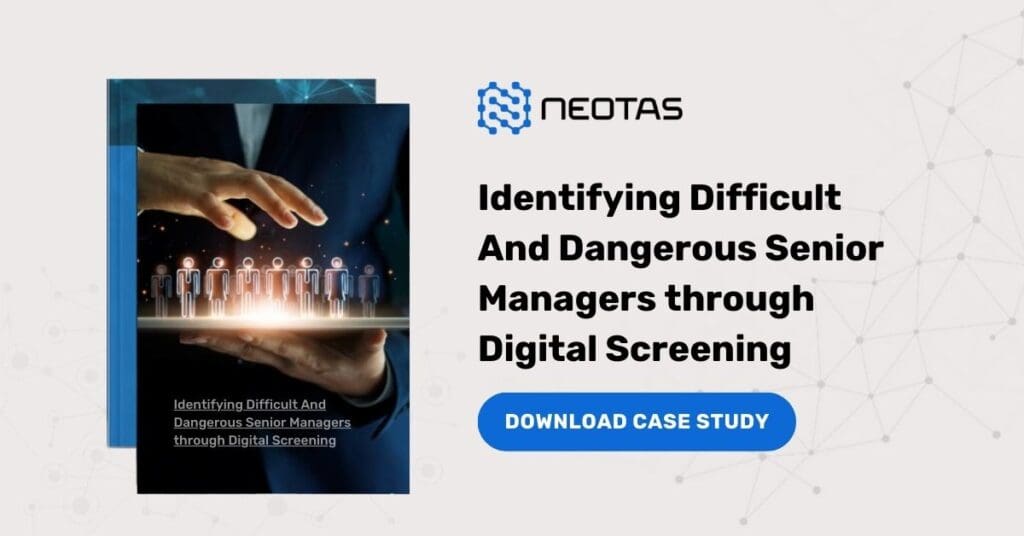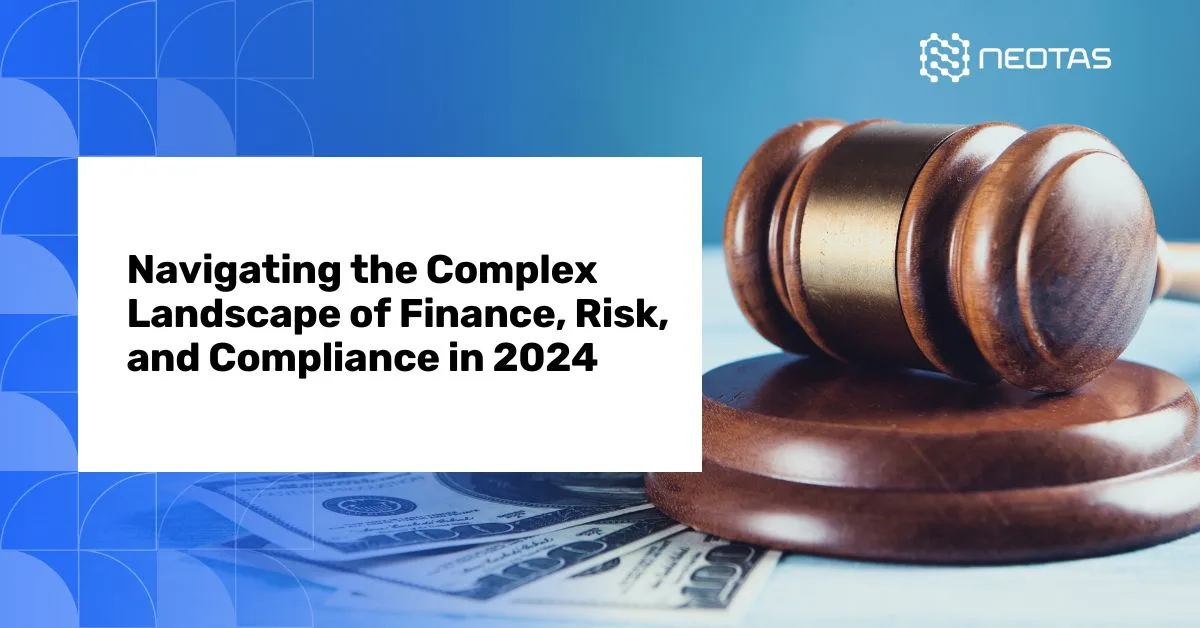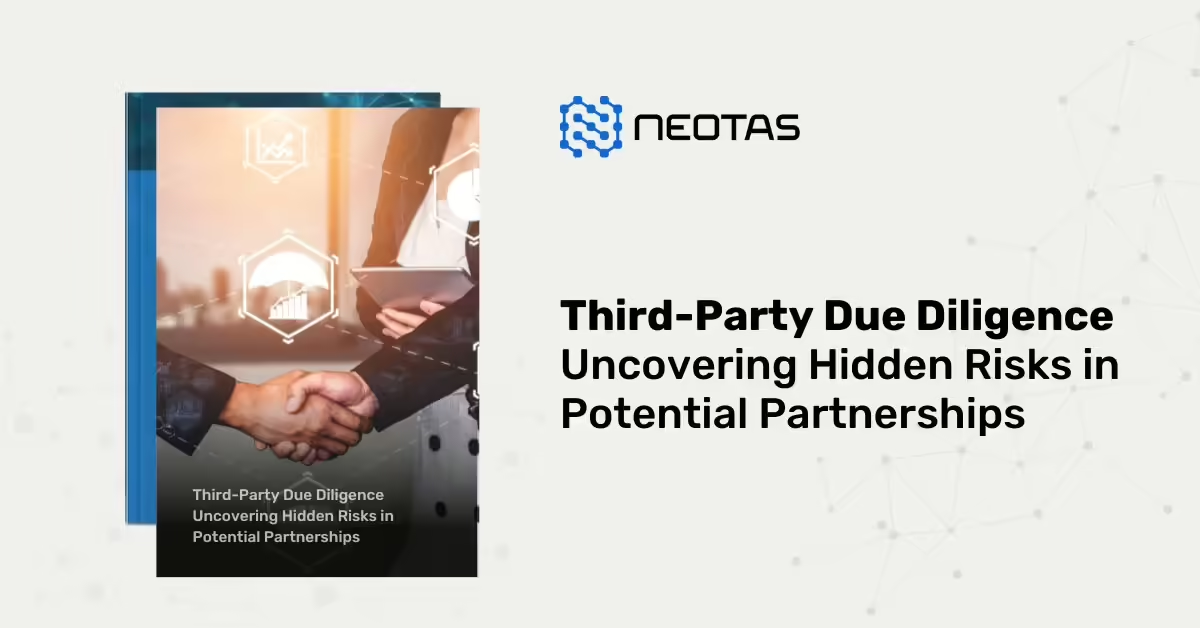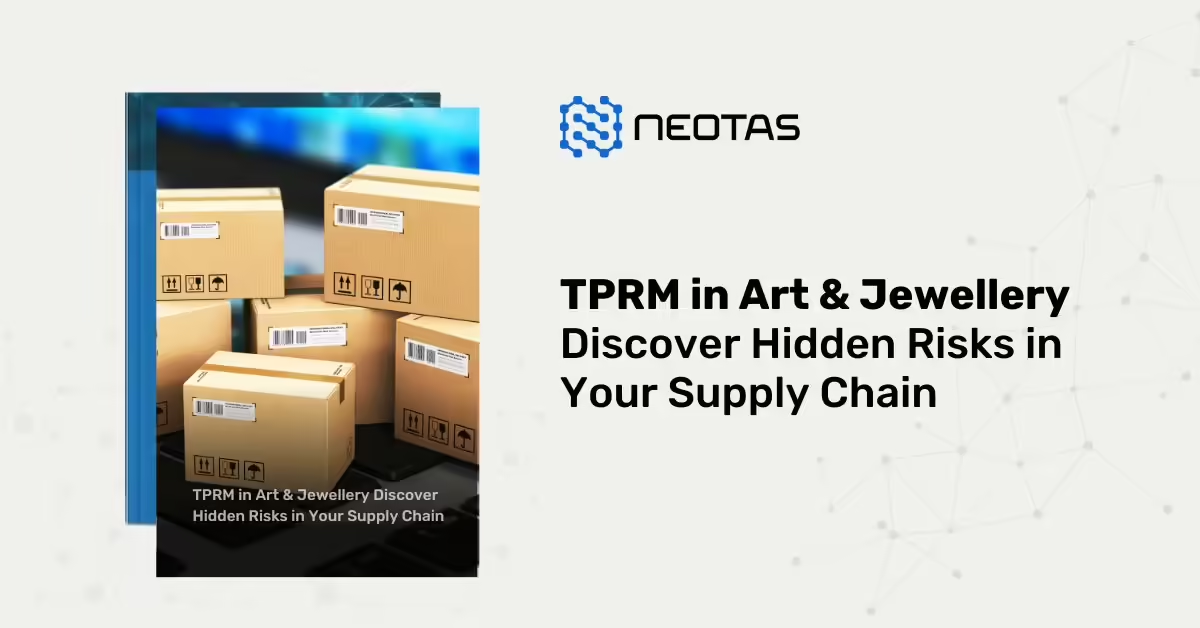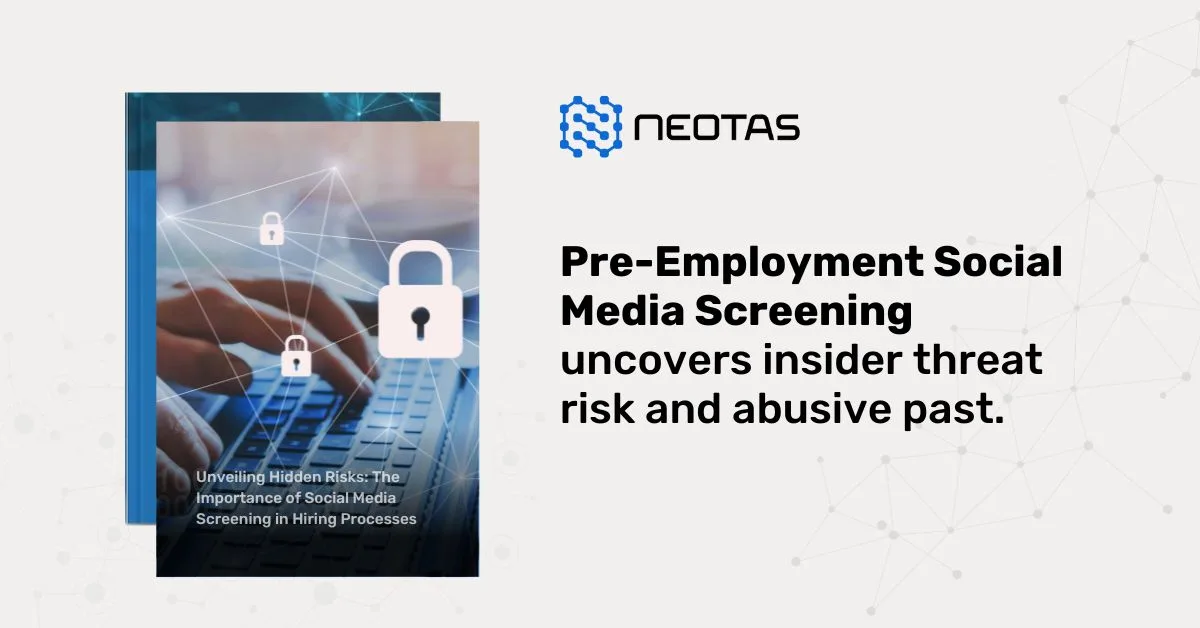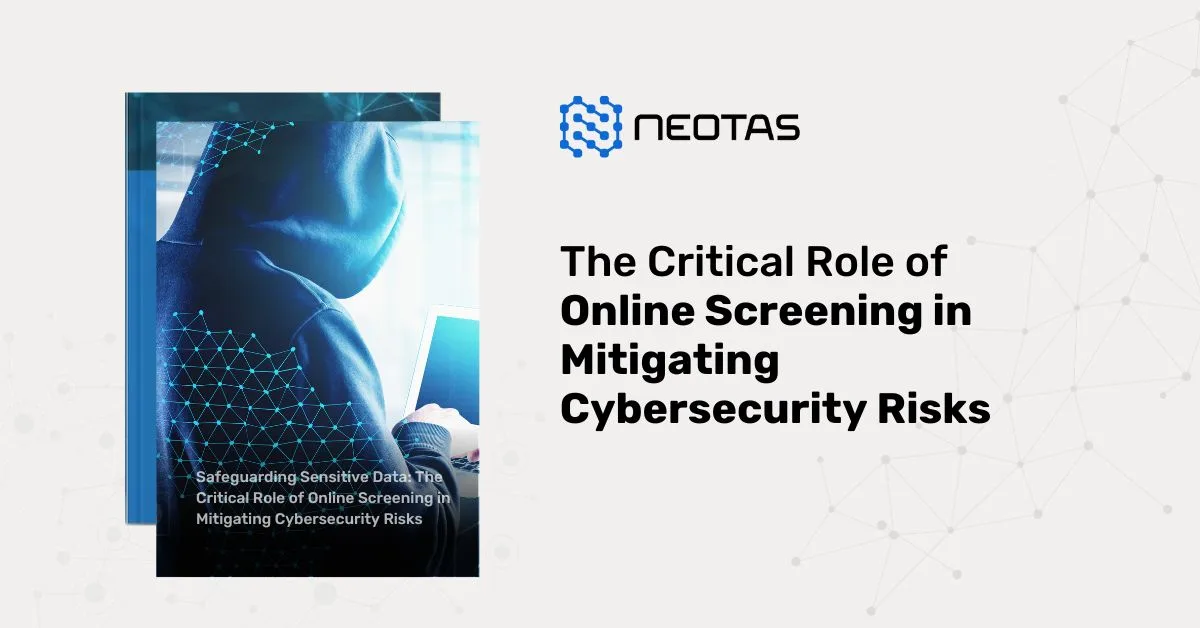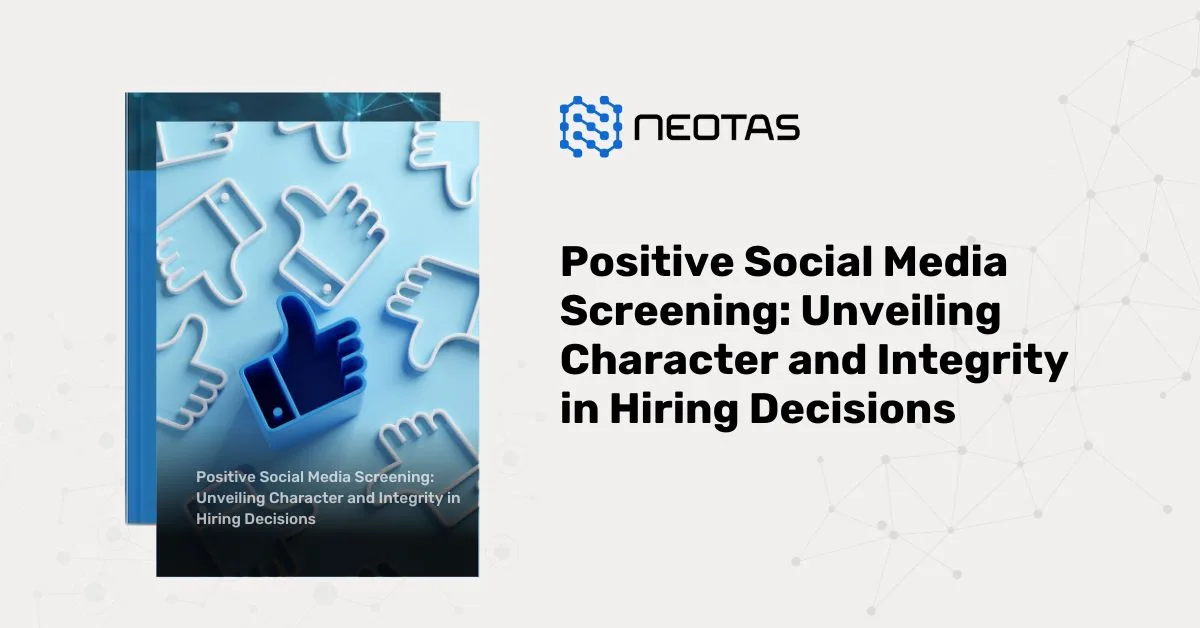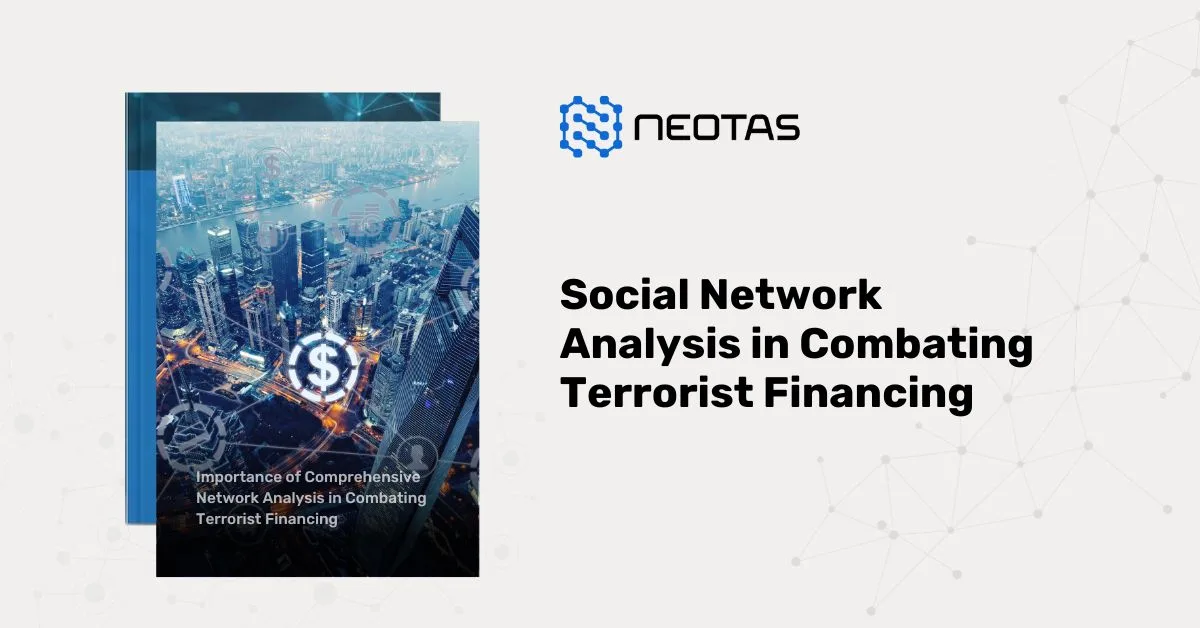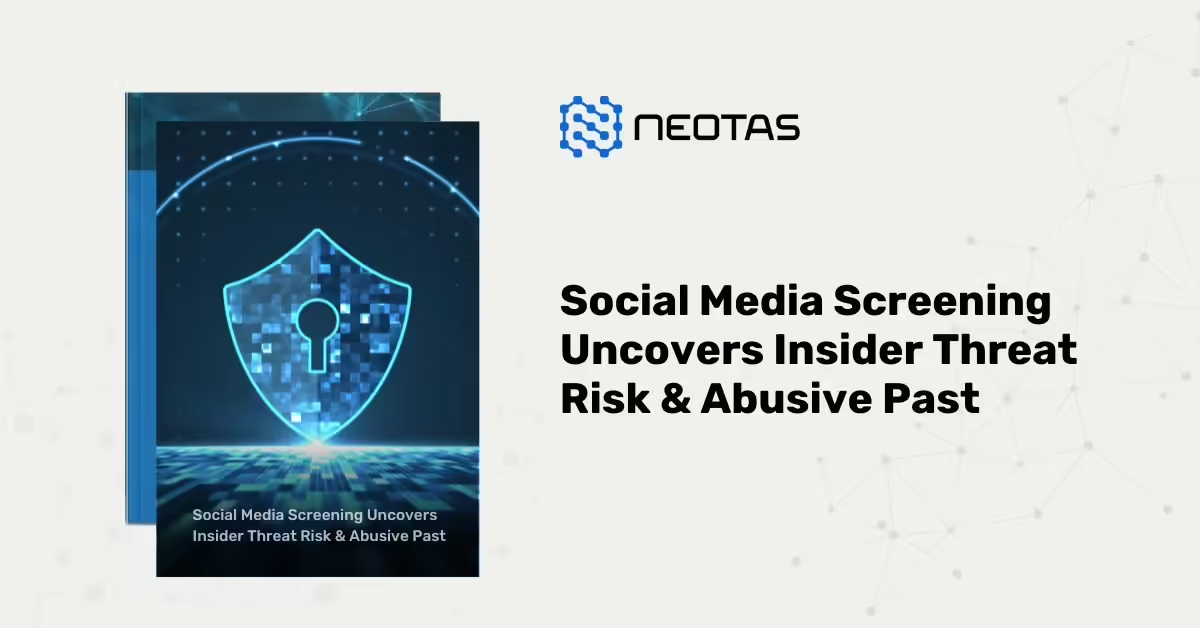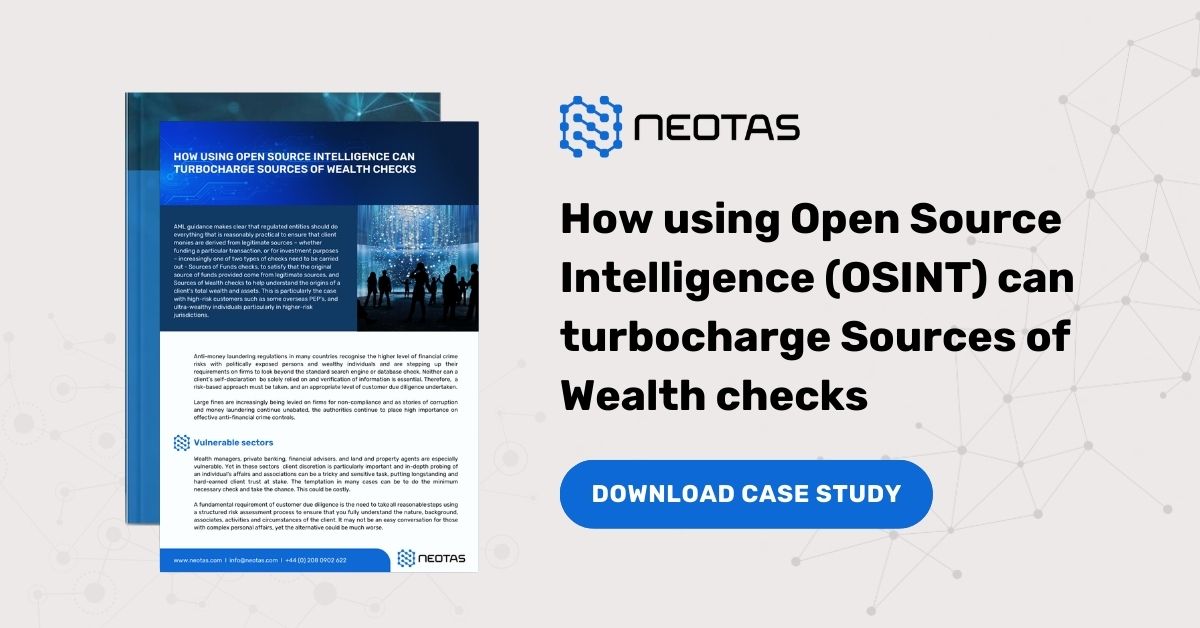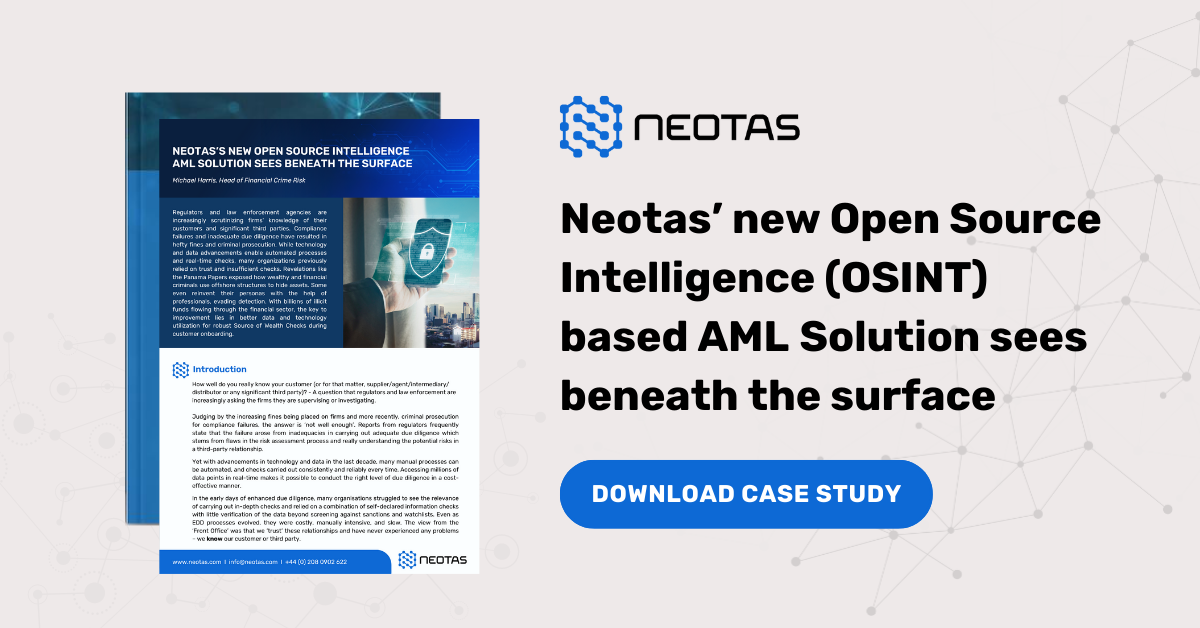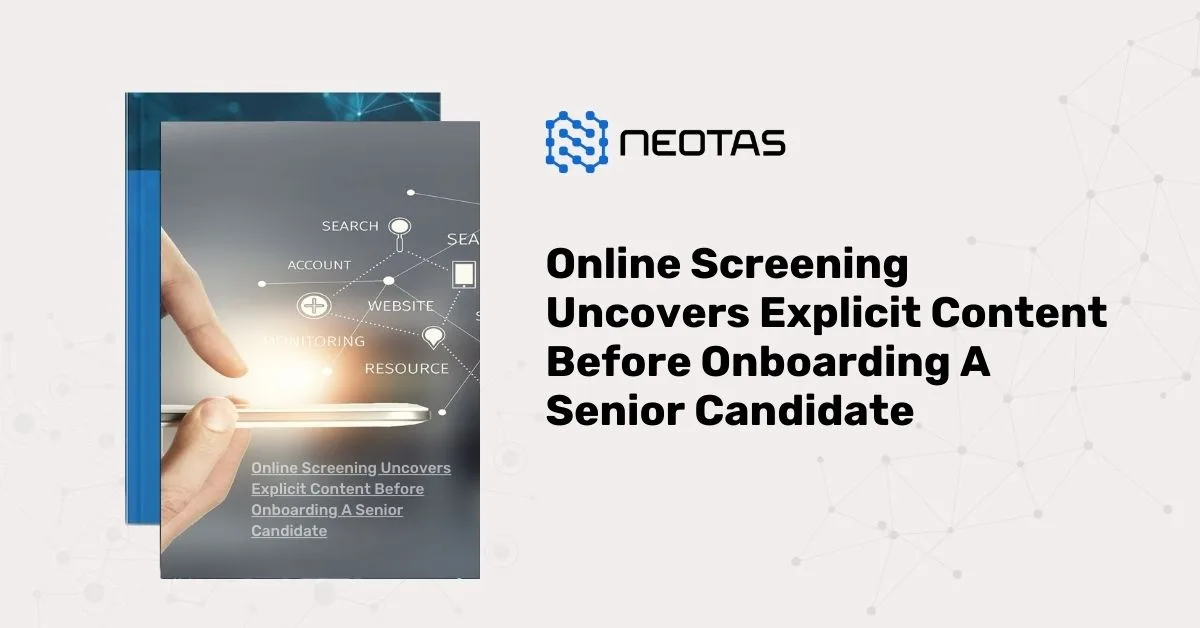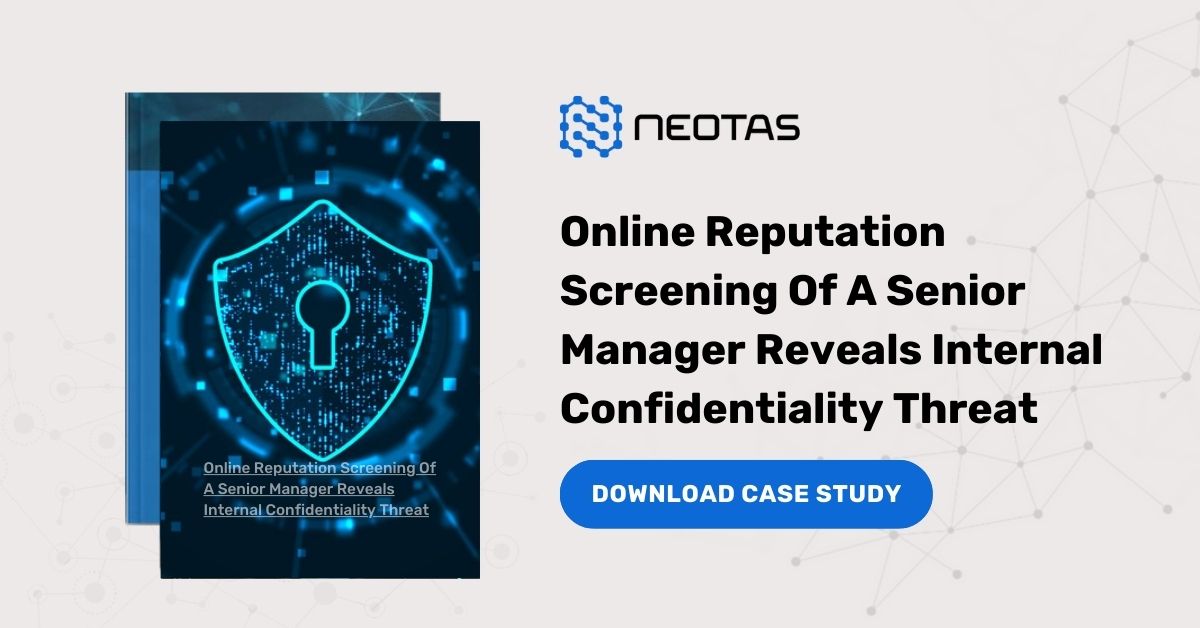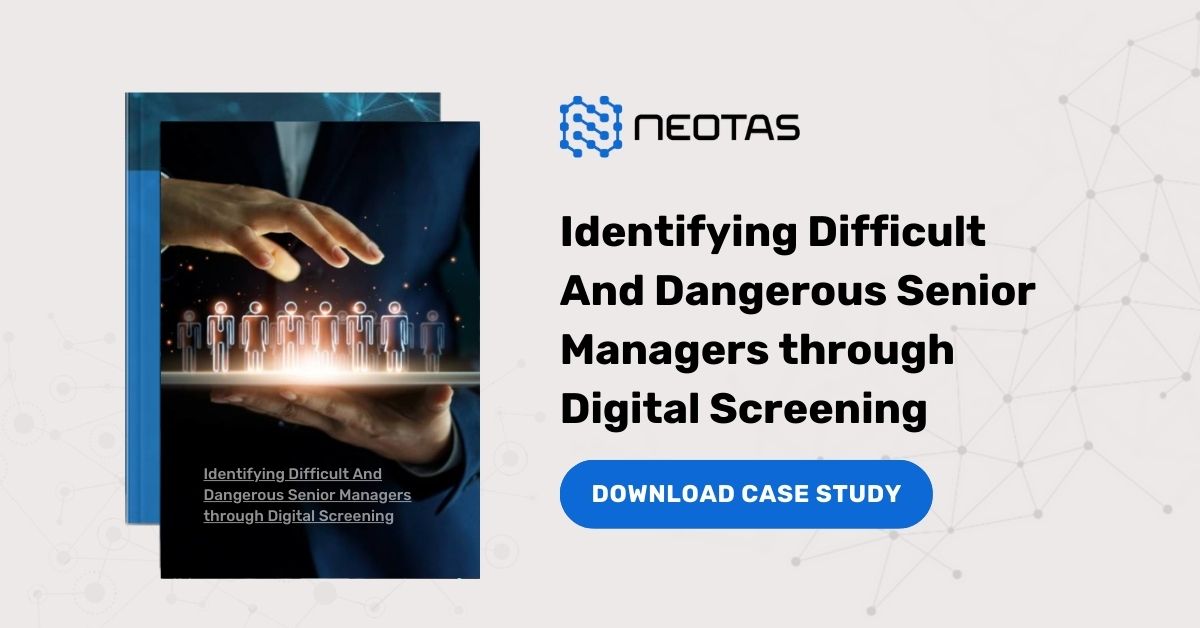Identifying Difficult And Dangerous Senior Managers through Digital Screening
Advisory firm Catalysis has tasked Neotas to conduct deep dive digital screenings for over 100 candidates in high-risk, management or senior roles.
- The background checks were conducted to identify role-related business risks for existing employees
- 10% of cases discovered behaviours categorised as “Difficult” or “Dangerous” by Catalysis
- “Neotas allows us to cover risks more thoroughly and at lower costs to our clients” – Mike Hicks, Founder, Catalysis Advisory.
Download the Case Study
Identifying difficult and dangerous senior managers is critical to protecting the well-being of an organisation, its employees, and stakeholders. Here are key strategies for recognising warning signs and taking appropriate action:
- Behavioral Red Flags: Look for signs of aggressive behavior, bullying, intimidation, or excessive micromanagement. Frequent conflicts with subordinates and peers can indicate a problematic management style.
- Lack of Empathy and Emotional Intelligence: Senior managers who lack empathy or emotional intelligence may display an inability to understand or address the needs and concerns of their team members.
- Erosion of Trust and Team Morale: Observe if team morale is declining, and there’s a growing lack of trust in the senior manager. Low employee engagement and high turnover rates could be indicators of a dangerous manager.
- Ethical Lapses: Be alert to any signs of ethical violations, such as dishonesty, favoritism, or misuse of power for personal gain.
- History of Past Incidents: Conduct thorough background checks and references to identify any past incidents or complaints related to the senior manager.
- Inconsistent Decision-Making: If senior managers display inconsistent decision-making or lack accountability for their actions, it may signal potential problems.
- Resistance to Feedback: A manager who is resistant to constructive feedback and dismisses concerns raised by employees should be closely monitored.
- Disregard for Compliance and Policies: Pay attention to managers who show disregard for organisational policies or compliance requirements, as this could lead to legal and reputational risks.
- Excessive Focus on Self-Preservation: Managers who prioritise their own interests over the organisation’s well-being may be detrimental to the company’s success.
- Bypassing Established Processes: If a manager consistently bypasses established procedures and decision-making channels, it can lead to chaos and inefficiency within the organisation.
Action Steps:
- Open Channels of Communication: Encourage employees to provide anonymous feedback and report concerns without fear of retaliation.
- Conduct Regular Performance Reviews: Performance evaluations should include feedback from subordinates, peers, and higher management to gain a comprehensive view of the manager’s behavior.
- Promote a Positive Culture: Foster a culture of transparency, respect, and accountability to discourage negative behaviors.
- Investigate Complaints Promptly: Take all complaints seriously and conduct impartial investigations to address any issues promptly.
- Provide Training and Support: Offer training programs on leadership, communication, and emotional intelligence to help managers develop essential skills.
- Escalate Serious Concerns: If behavior poses significant risks to the organisation, escalate concerns to the appropriate higher authorities or the board.
Benefits of Digital Screenings:
- Efficiently screen a large number of candidates in a short time frame.
- Identify potential risks and red flags associated with high-risk roles.
- Facilitate informed decision-making and protect the organisation from reputational and legal risks.
Identifying difficult and dangerous senior managers requires vigilance and a proactive approach to safeguarding the organisation’s values and well-being. By recognising warning signs and taking appropriate actions, organisations can foster a healthy and productive work environment while mitigating potential risks posed by problematic managers.

